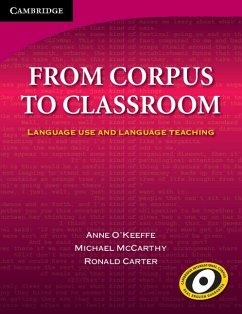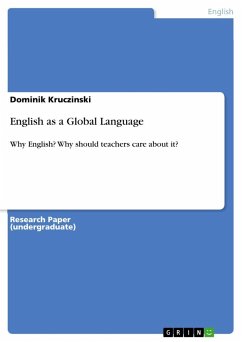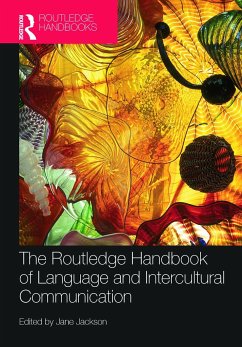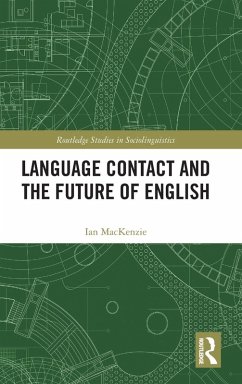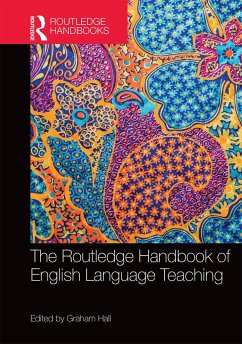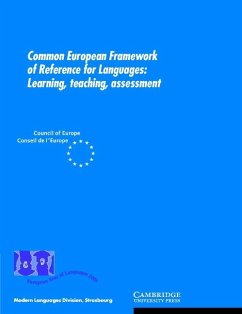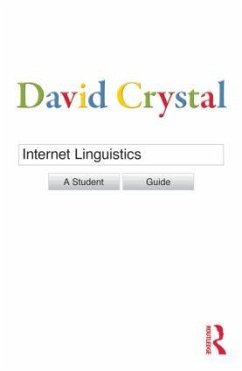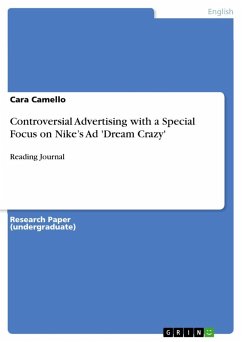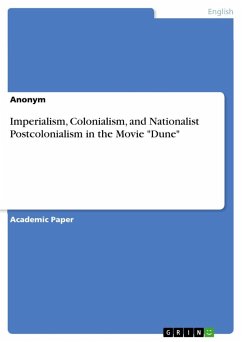
Corpus-Based Language Studies
An Advanced Resource Book
Versandkostenfrei!
Versandfertig in 6-10 Tagen
40,99 €
inkl. MwSt.

PAYBACK Punkte
20 °P sammeln!
Routledge Applied Linguistics is a series of comprehensive textbooks, providing students and researchers with the support they need for advanced study in the core areas of English language and Applied Linguistics.Each book in the series guides readers through three main sections, enabling them to explore and develop major themes within the discipline. Section A, Introduction, establishes the key terms and concepts and extends readers' techniques of analysis through practical application. Section B, Extension, brings together influential articles, sets them in context, and discusses their contr...
Routledge Applied Linguistics is a series of comprehensive textbooks, providing students and researchers with the support they need for advanced study in the core areas of English language and Applied Linguistics.
Each book in the series guides readers through three main sections, enabling them to explore and develop major themes within the discipline.
Section A, Introduction, establishes the key terms and concepts and extends readers' techniques of analysis through practical application. Section B, Extension, brings together influential articles, sets them in context, and discusses their contribution to the field. Section C, Exploration, builds on knowledge gained in the first two sections, setting thoughtful tasks around further illustrative material. This enables readers to engage more actively with the subject matter and encourages them to develop their own research responses.
Throughout the book, topics are revisited, extended, interwoven and deconstructed, with the reader's understanding strengthened by tasks and follow-up questions.
Corpus-Based Language Studies:
covers the major theoretical approaches to the use of corpus dataadopts a 'how to' approach with exercises and cases, affording students with the knowledge and tools to undertake their own corpus-based researchgathers together influential readings from leading names in the discipline, including: Douglas Biber, Henry Widdowson, Michael Stubbs, Ronald Carter, and Michael McCarthy is supported by a website featuring long extracts for analysis by students with commentary by the authors.
The accompanying website to this book can be found at http://cw.routledge.com/textbooks/0415286239/
Each book in the series guides readers through three main sections, enabling them to explore and develop major themes within the discipline.
Section A, Introduction, establishes the key terms and concepts and extends readers' techniques of analysis through practical application. Section B, Extension, brings together influential articles, sets them in context, and discusses their contribution to the field. Section C, Exploration, builds on knowledge gained in the first two sections, setting thoughtful tasks around further illustrative material. This enables readers to engage more actively with the subject matter and encourages them to develop their own research responses.
Throughout the book, topics are revisited, extended, interwoven and deconstructed, with the reader's understanding strengthened by tasks and follow-up questions.
Corpus-Based Language Studies:
covers the major theoretical approaches to the use of corpus dataadopts a 'how to' approach with exercises and cases, affording students with the knowledge and tools to undertake their own corpus-based researchgathers together influential readings from leading names in the discipline, including: Douglas Biber, Henry Widdowson, Michael Stubbs, Ronald Carter, and Michael McCarthy is supported by a website featuring long extracts for analysis by students with commentary by the authors.
The accompanying website to this book can be found at http://cw.routledge.com/textbooks/0415286239/





